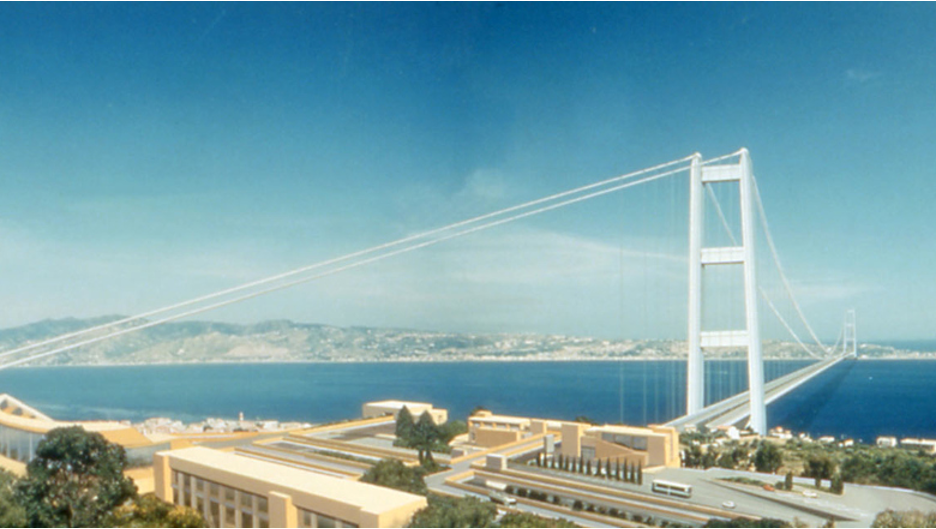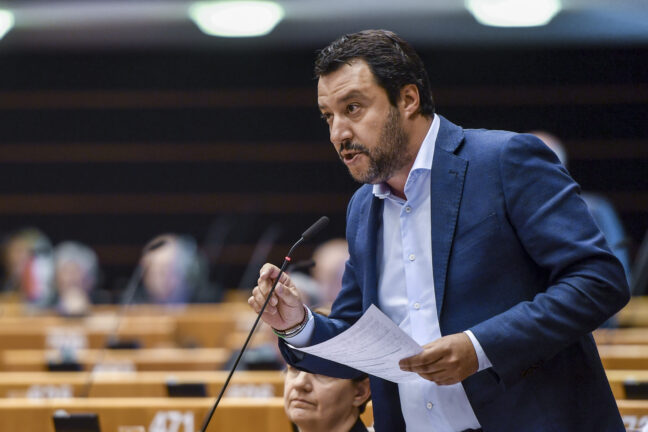The Court of Auditors, the body responsible for monitoring public finances in Italy, issued a negative opinion on Wednesday on the financial plan for the government’s €13.5bn Messina Bridge project. The megaproject, revived in 2023 after decades of uncertainty, has had a chequered history. The Italian government, however, remains determined to push it forward.
Deputy Prime Minister and Infrastructure Minister Matteo Salvini, a strong proponent of the bridge, indicated that the Court’s objections would not prevent the government from pursuing the project, which aims to link Sicily with the Italian mainland.
Firebrand
Mr Salvini has never been fond of decisions by independent and state bodies that do not follow the government’s line. He first criticised the Italian judiciary over the Open Arms NGO case. In 2019, Mr Salvini, then Interior Minister, illegally blocked a migrant rescue ship from docking (he later won acquittal, though the case is still under appeal), and he claimed the system included “red robes” (a colloquial term for judges, often used in Italy to suggest they are left-leaning or have a political bias).
Now his ire is aimed at the Court of Auditors. “This is the judicial establishment seeing its power and its empire collapse. And these are its latest, desperate invasions,” the Minister of Infrastructure said. “These gentlemen won’t stop us. The problem is that the decision regarding the bridge is not a snub to Lega, but to all Italians. They’re doing it against everyone,” he added. Mr Salvini is Federal Secretary of the far-right Lega party.
You might be interested
What a difference a meeting makes
After meeting Prime Minister Giorgia Meloni (whose party, Brothers of Italy, belongs to the right-wing ECR group in the EU Parliament) and Foreign Minister Tajani (Forza Italia, part of the EPP), Mr Salvini tempered his earlier statements. Regarding the Court of Auditors’ decision, he said, “there is no conflict between the state authorities: we will provide all the information requested.” Regarding the planned bridge itself, Mr Salvini siad that “work will begin not at the end of 2025, but at the beginning of 2026.” He also reiterated the government’s determination to push the project forward, signalling that the Court’s objections would not stop progress.
The Court of Auditors responded that its review of the “CIPESS” resolution, which concerns the economic and financial plan for the construction of the Messina Bridge, was strictly legal and did not evaluate the appropriateness or merits of the project. For the Italian government, however, the bridge has taken on a political dimension, symbolising the unity of the coalition ahead of the constitutional referendum scheduled for 2026.

EU continues to flag environmental concerns
The Messina Bridge, which would link the Italian peninsula with Sicily, remains a perennial topic in Italian politics. Some members of Forza Italia recall that it was “Berlusconi’s dream” and argue that construction should move forward. “It’s a project supported by Europe: the current European Commissioner, Apostolos Tzitzikostas, and his predecessor, Adina-Ioana Vălean, are both absolutely in favour of this project. And now, we’re seeing a decision that’s politically charged and has very little technical merit. They think they can stop this project? They’re very wrong,” Mr Salvini said.
Still, while the transport arm of the European Commission appears supportive, its environmental divisions are proceeding with caution and have flagged potential ecological impacts.
On 11 June, Italian authorities notified the European Commission of the Messina Bridge project under Article 6(4) of the Habitats Directive. The Commission has since been evaluating its potential effects. At the end of September, it said it would consider the bridge’s impact on animal habitats, compensatory measures, and related issues concerning water, air, and noise.
Critics including the Italian Greens MEPs argue that the Italian government has tried “to pass off the Bridge as a strategic infrastructure project, but the truth is that it is a fragile project, contested by experts, and lacking economic and environmental sustainability.” And critical opinions go further, stressing that “the project would actually drain €14bn away from real priorities: local transportation, water networks, healthcare, and social services.”
Following the Court of Auditors’ rejection, the Italian government plans to appeal and seek provisional authorisation to assume full responsibility for the project and any legal consequences. At the same time, pressure is mounting on the European Commission to clarify its stance on environmental approval.











